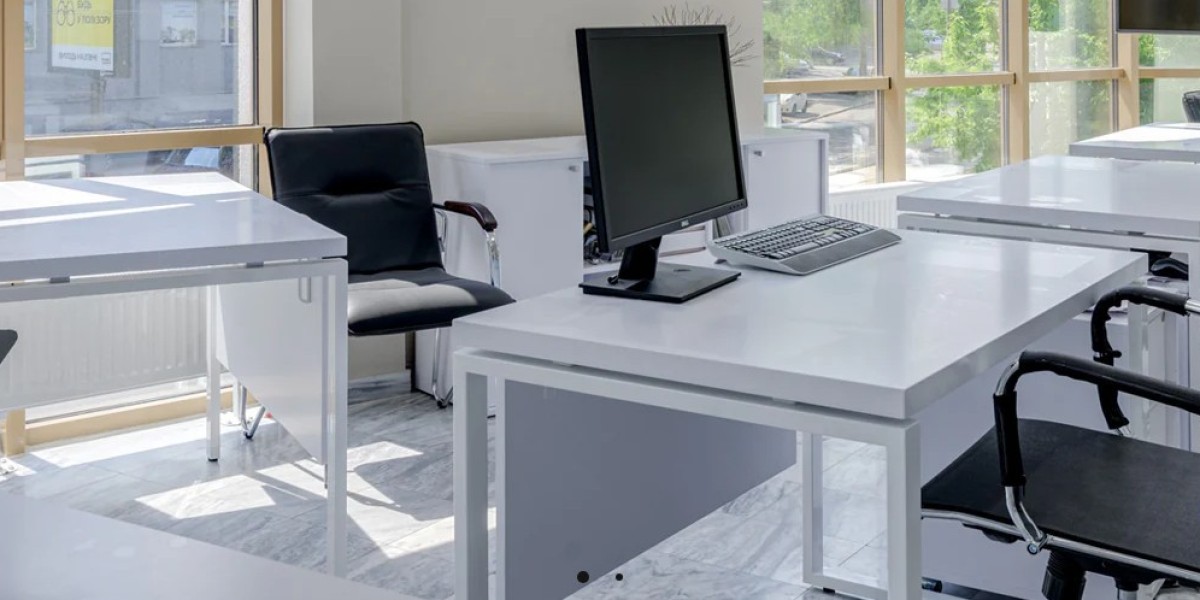Ergonomic chairs are essential in every office setting for several key reasons that impact employee well-being, productivity, and overall workplace efficiency. Here’s why every office needs ergonomic chairs:
1. Promotes Healthy Posture
- Support for Spinal Alignment: Ergonomic chairs are designed to support the natural curve of the spine, helping to maintain proper spinal alignment. This reduces the risk of developing musculoskeletal disorders and back pain.
- Adjustable Features: With adjustable seat height, backrest, and lumbar support, ergonomic chairs enable users to customize their seating position to suit their body type and desk height, encouraging a healthier posture.
2. Reduces Risk of Injury
- Prevents Musculoskeletal Disorders: Proper ergonomic support helps prevent common musculoskeletal issues such as lower back pain, neck strain, and repetitive strain injuries. By reducing physical stress and strain, ergonomic chairs contribute to a healthier work environment.
- Improves Comfort: Ergonomic chairs reduce discomfort associated with prolonged sitting, which can lead to less frequent breaks and a decreased risk of injuries related to poor posture or strain.
3. Enhances Productivity
- Reduces Discomfort and Pain: By providing proper support and comfort, ergonomic chairs help employees focus on their tasks without being distracted by pain or discomfort. This leads to increased productivity and efficiency.
- Encourages Longer Focus Periods: Comfortable seating encourages employees to remain seated and engaged for longer periods, which can improve task completion and reduce interruptions.
4. Supports Various Work Styles
- Adaptability: Ergonomic chairs often come with features that support different working positions and tasks, such as adjustable armrests, seat tilt, and backrest recline. This flexibility accommodates various work styles and activities, from typing to writing or meetings.
- Encourages Movement: Many ergonomic chairs are designed to encourage movement and adjustments, which helps prevent stiffness and promotes overall comfort throughout the day.
5. Boosts Employee Morale and Satisfaction
- Investing in Employee Well-being: Providing high-quality ergonomic chairs demonstrates a commitment to employee health and well-being. This investment can lead to higher job satisfaction and morale.
- Creates a Positive Work Environment: A comfortable and supportive workspace contributes to a more positive and motivating work environment, which can enhance employee retention and attract top talent.
6. Reduces Absenteeism and Health Costs
- Lower Health-Related Absenteeism: By preventing work-related injuries and discomfort, ergonomic chairs can reduce absenteeism due to health issues. Employees who are comfortable are less likely to take sick leave.
- Decrease in Health Costs: Investing in ergonomic chairs can lead to lower long-term health costs by reducing the risk of work-related injuries and the need for medical treatments related to poor ergonomics.
7. Improves Overall Workplace Ergonomics
- Integrated Ergonomic Solutions: Ergonomic chairs are part of a broader ergonomic approach that includes proper desk height, monitor positioning, and keyboard placement. Proper chair selection helps create a cohesive ergonomic setup that supports overall health and productivity.
- Standardization: Providing ergonomic chairs as a standard feature in the office helps ensure that all employees have access to supportive and comfortable seating, promoting a consistent ergonomic environment.
8. Enhances Flexibility and Adjustability
- Customization: Ergonomic chairs offer a range of adjustments to cater to different users and preferences, including seat depth, backrest angle, and armrest height. This customization allows each employee to create a chair setup that best suits their individual needs.
9. Supports Long-Term Well-being
- Preventive Health Benefits: Investing in ergonomic chairs is a proactive approach to long-term employee health. By addressing potential ergonomic issues early, companies can foster a healthier workforce and reduce the likelihood of chronic issues developing over time.
Conclusion
Ergonomic chairs are crucial in every office setting as they promote healthy posture, reduce the risk of injury, enhance productivity, and boost employee morale. By investing in ergonomic chairs, organizations can create a more comfortable and supportive work environment that benefits both employees and the overall workplace.








